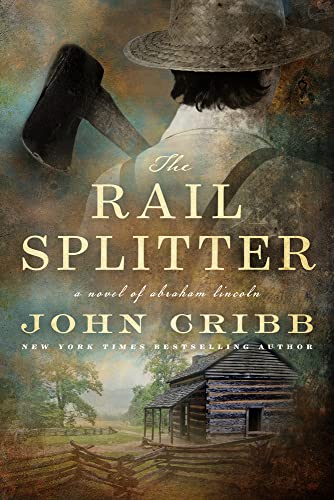The Rail Splitter
Abraham Lincoln’s father is worried that his 17-year-old son is heading down the wrong path, fooling around with more education than he needs instead of putting his back into a piece of land and turning it into something useful. Young Abraham is not sure what path he will follow, but he’s sure of one thing: it won’t involve owning a farm.
The best way to understand the man, author Cribb notes, is to know the boy. The Rail Splitter, his prequel to the acclaimed 2020 novel Old Abe, lets readers do just that. It begins in 1826 when Abe splits his time between pulling fodder on the family farm and ferrying cargo and passengers up and down the Ohio River. The narrative follows the family as they move to Illinois in 1830 to avoid the milk sick that killed four cows in one week. Abe’s first efforts to make his own way include ferrying cargo along the Sangamon River in a flatboat, clerking at a general store, serving as local postmaster and land surveyor. He studies the law and enters into legal practice in Springfield in 1837, then moves into state and later national politics from 1846 to 1859.
The novel is a keen reflection not only of the man but also the times. Readers will appreciate Abe’s sense of decency, his often-quick wit, the thrill of his first love and sorrow of his loss, his humility and depth of principle. They walk with him through dense, lonesome woods, shudder with him when his flatboat runs aground, and ride from courthouse to courthouse with him as he represents law clients. Readers find in The Rail Splitter the heart of the 16th U.S. President and the country that shaped him.










